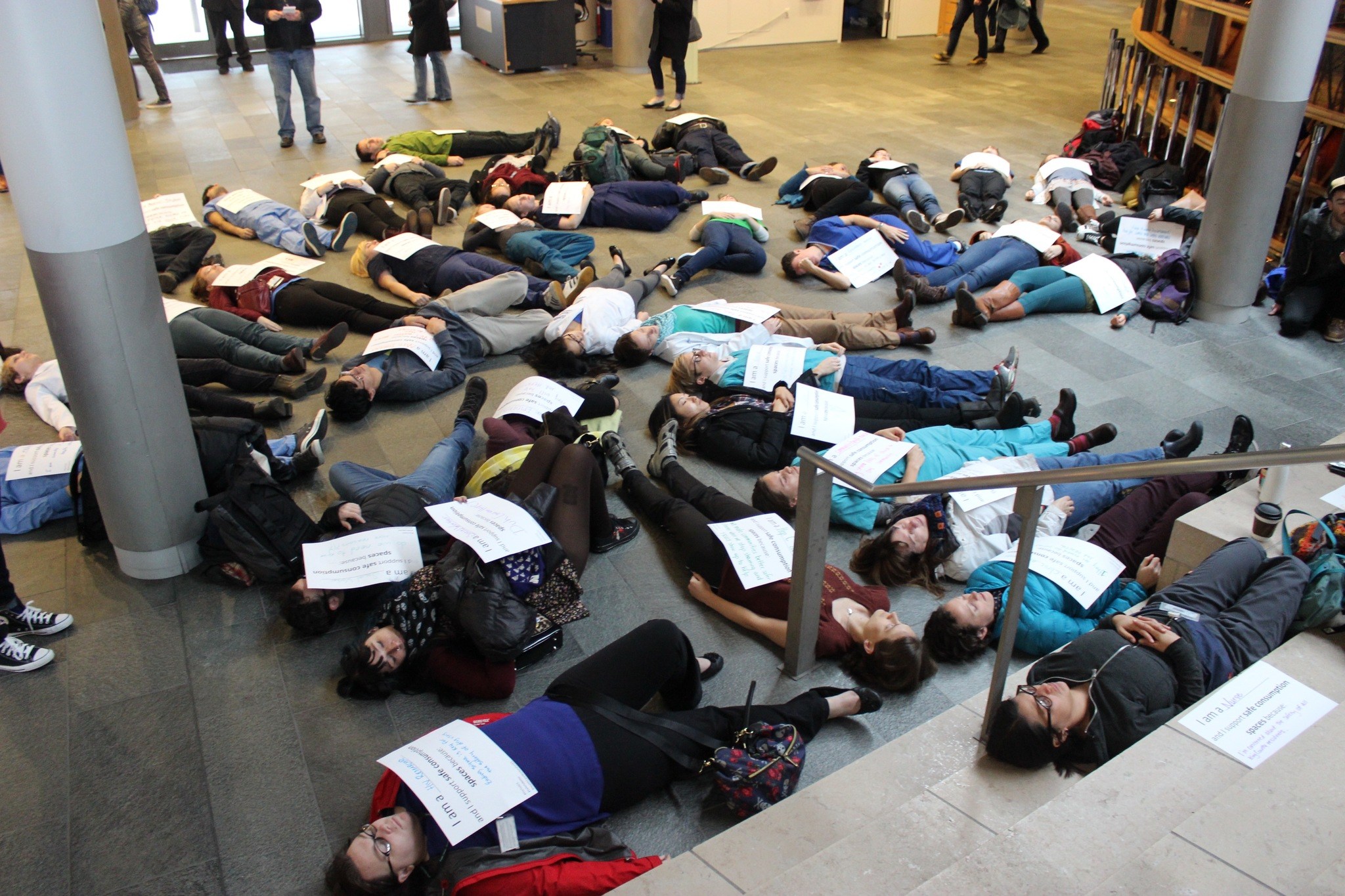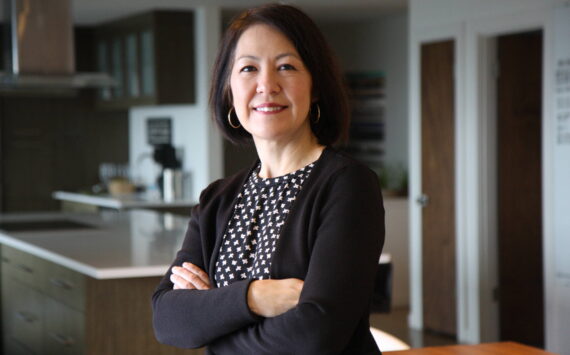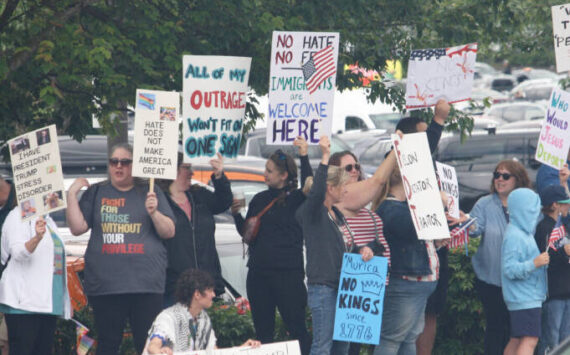This afternoon, medical activists staged a “die in” at Seattle City Hall. Splayed on the cool, polished lobby floor, about 30 members of the new group Health Care Workers for Supervised Consumption Spaces imitated the corpses that will be created if safe drug sites aren’t established. City and county leaders are expected to announce soon whether Seattle will proceed with plans to establish a pilot safe drug site.
At the die-in (a form of theatrical protest pioneered by groups like ACT UP in response to the HIV/AIDS epidemic), Tarra Simmons stood and spoke over the bodies. She described how she’d suffered from substance abuse disorder while still working as a nurse. “I was really ashamed to get help because of the stigma attached to substance abuse disorder,” she said. “I knew I needed treatment, but I thought I would lose my license if I sought treatment.” Simmons eventually went to prison for her addiction. After she got out in 2013, she says, she enrolled at the Seattle University law school, from where she’s about to graduate. Simmons says she recently learned she won admission to the prestigious Skadden Fellowship, a legal aid program sort of like a domestic Peace Corps. Simmons says she’s the first SU student to get in in the Fellowship’s 28 year history.
As we’ve reported previously, Seattle is on track to possibly host the first formal safe drug site in the U.S. The idea of such sites is to provide a clean, non-public space for drug users to imbibe, with medical staff and counselors standing by in case of overdose or if someone wants to change their situation. A needles-only safe drug site has been operating in Vancouver, B.C. since 2003. It’s had thousands of overdoses, zero deaths, and innumerable success stories. Data collected from that site and others around the world has shown the sites to save taxpayers money and deliver huge public health benefits.
In September, responding to growing opioid epidemic, a much-vaunted Seattle/King County Heroin and Prescription Opiate Task Force recommended that the city and county establish two pilot safe drug sites, or Community Health Engagement Locations (CHELs)—one inside Seattle and one elsewhere in King County. King County Executive Dow Constantine and Seattle Mayor Ed Murray both have said they support the safe safe drug site recommendation in principle, and are expected to make a more detailed announcement sometime in the next week or two about whether and how they’ll create them.
City Attorney Pete Holmes says he’s open to safe drug sites and thinks the city and county do have the legal ability to establish them, should they choose to. “Drug use should always have been treated as a public health problem, not a criminal justice problem,” he says. “The crime of being an addict is one of the problems that we’re still trying to unwind in this country. Safe injection sites might be a positive step forward.”
While momentum behind safe drug sites has been growing for the past year or two in Seattle, they’re still controversial. Auburn Mayor Nancy Backus and Renton Mayor Denis Law, who with Constantine and Murray requested the task force recommendations, talked in circles when asked whether they’d support safe drug sites in their own cities. State senator Mark Miloscia has proposed legislation to ban safe drug sites. And with Donald Trump poised to take the Oval Office, the federal government’s relatively relaxed stance on local drug policy may be about to get a lot more stringent.








